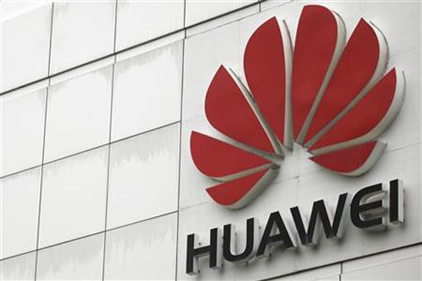To the huge list of reasons why the benefits of contracting manufacturing to China don’t add up, we can now add national security and corporate espionage.
In a bipartisan move endorsed by Mike Rogers, R-MI, and C.A. Dutch Ruppersberger, D-MD, the House Intelligence Committee on Monday recommended that American companies and the federal government stay away from two Chinese telecom manufacturers, Huawei Technologies and ZTE Corp. In making the recommendation, the committee reported that former employees of Huawei had provided internal documents showing that the company supplies cyberware services to the People’s Liberation Army.
“We have to be certain that Chinese telecommunication companies working in the United States can be trusted with access to our critical infrastructure,” said Rogers, the committee’s chairman. “Any bug, beacon, or backdoor put into our critical systems could allow for a catastrophic and devastating domino effect of failures throughout our networks. As this report shows, we have serious concerns about Huawei and ZTE, and their connection to the communist government of China. China is known to be the major perpetrator of cyber espionage, and Huawei and ZTE failed to alleviate serious concerns throughout this important investigation. American businesses should use other vendors.”
The committee has posted a summary of the report on its web site. The summary includes five recommendations:
-
U.S. government systems and U.S. government contractors, particularly those working on sensitive systems, should exclude any Huawei or ZTE equipment or component parts. Additionally, the Committee on Foreign Investments in the United States (CFIUS) must block acquisitions, takeovers, or mergers involving Huawei and ZTE, given the threat to U.S. national security interests.
-
U.S. network providers and systems developers are strongly encouraged to seek other vendors for their projects.
-
Unfair trade practices of the Chinese telecommunications sector should be investigated by Congress and federal enforcement agencies. Particular attention should be paid to China’s continued financial support of key companies.
-
Chinese companies should quickly become more open and transparent. Huawei, in particular, must become more transparent and responsive to U.S. legal obligations.
- Congress should consider legislation to better address the risk posed by telecommunications companies with nation-state ties or otherwise not clearly trusted to build critical infrastructure, including increasing information-sharing among private-sector entities and expanding a role for the CFIUS process to include purchasing agreements.
Rogers used blunt language in a CBS 60 Minutes interview on Sunday night. “If I were an American company today...looking at Huawei, I would find another vendor, if you care about your intellectual property, if you care about your consumers’ privacy, and you care about the national security of the United States of America,” he said.
In the throes of election season, this could be seen as just political posturing. But it’s not (or, at least, not solely). The investigation has taken more than a year, and the committee says Huawei and ZTE “failed to alleviate serious concerns throughout this important investigation.”
Certainly, Huawei’s history invites concern. The company’s founder and operations head is a former People’s Liberation Army officer and military technology researcher. The New York Times notes that Huawei “unlike many Chinese corporations, has chosen not to sell shares in Hong Kong or the United States, which would expose it to extensive requirements for financial disclosure.”
Telecom, of course, is just one face of computer technology. And computers can talk to each other in ways that go well beyond the usual definition of telecommunications. Many—perhaps most—Western companies pay no attention to potential security issues when they buy computer systems made in China. Cyberware exposure does not apply only to national defense; corporate espionage is a very real threat.
Increasingly, China is losing its cost advantages. Workers are striking (and, in some cases, rioting) at Chinese factories. Chinese suppliers copy Western products and intellectual property to become competitors. Time to market is longer. And now we can add electronic espionage. Can anyone say with confidence anymore that outsourcing to China makes sense?
Am I missing something? Let me know.

Recent Comments
Helpful for Trainees
Cable Assembly Manufacturers
Huawei for manufacturing?
should have a scanner and then 3D print the repair
IPC-A-610 and IPC-j-std-001